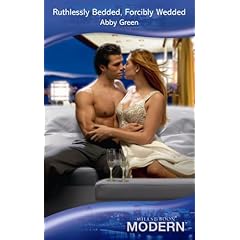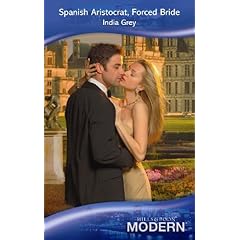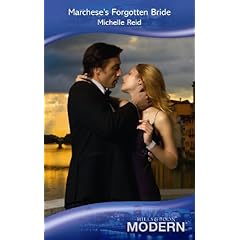
Anyone who has read this blog for a while will probably be aware of the fact that I have a long term connection with, almost an obsession with, the lives and books of the Bronte sisters. I grew up near Halifax, just a few miles away from Haworth where Charlotte Emily and Anne Bronte lived, I read the books from a very early age – my first reading of Wuthering Heights was around the age of 12 – and then I studied the books both for my first degree and for my MA when I wrote my thesis comparing the adult work of Charlotte and Emily and connecting it to their childhood writings when they created their own imaginary worlds of Angria and Gondal.
So last night when UK TV aired the first episode of their brand new adaptation of Wuthering Heights, of course I had to watch it. If I’m honest I didn’t hope for much. I’ve never been truly satisfied with any TV or film adaptation of one of my favourite books starting with the classic Laurence Olivier and Merle Oberon ( running, as an old friend and Irish poet the late Ewart Milne once said ‘the gamut of emotions from A to B), going through the films versions such as the 1970s one with Timothy Dalton and Anna Calder –Marshall that forgot all about the second generation story and had the ghosts of Heathcliff and Cathy floating off to eternity across the moors.

I didn’t have high hopes of this newest TV version – which is perhaps just as well as I would have been deeply disappointed in it if I had. For me the whole production was a watered down, adulterated mess that would have had Emily Bronte spinning in the crypt under Haworth parsonage. I think the real problem was that – as so many others have always done and as one newspaper review put it - it tried to turn Wuthering Heights into "a real love story that a modern day audience could relate to".
WH is not and never was meant to be a romance or really a love story - it'sa story of obsession, of passion, of possession and revenge but not of any real love. Catherine - who was totally watered down in this TV version - is a selfish, demanding,often petulant even cruel girl . The real
 reason Heathcliff leaves is not his treatment by Hindley but the fact that he hears Cathy declare to Nelly that 'it would degrade me tomarry Heathcliff' - particularly after she has mocked him for being dirty and awkward and she laughs at him with Edgar. This important scene was badly neglected with the result that it just appeared that Heathcliff decide to leave in a sulk. This was one of failings of the production - the novelist/editor part of me was wanting so muchmore of an answer *why* he decided to leave at that moment - all of which hadbeen edited out of the drama by the script.That amazing scene where Heathcliff bangs his head against a tree on hearing of Cathy's death is one of the most powerful scenes in the book and last night itwas downgraded to a sulky lout banging his head three times against the wall of Thrushcross Grange because he's seen Cathy happy and smiling inside the house -and then he lifted his head without a mark, not even a bruise when in theoriginal Heathcliff draws blood and in fact spatters the tree with it.
reason Heathcliff leaves is not his treatment by Hindley but the fact that he hears Cathy declare to Nelly that 'it would degrade me tomarry Heathcliff' - particularly after she has mocked him for being dirty and awkward and she laughs at him with Edgar. This important scene was badly neglected with the result that it just appeared that Heathcliff decide to leave in a sulk. This was one of failings of the production - the novelist/editor part of me was wanting so muchmore of an answer *why* he decided to leave at that moment - all of which hadbeen edited out of the drama by the script.That amazing scene where Heathcliff bangs his head against a tree on hearing of Cathy's death is one of the most powerful scenes in the book and last night itwas downgraded to a sulky lout banging his head three times against the wall of Thrushcross Grange because he's seen Cathy happy and smiling inside the house -and then he lifted his head without a mark, not even a bruise when in theoriginal Heathcliff draws blood and in fact spatters the tree with it.This Heathcliff only rarely showed sparks of the dangerous, destructive man who was going to bring such chaos and devastation to the world of Wuthering Heights. I had a moment of hope when he first appeared and showed a mixture of charm and danger that held great potential. But sadly that didn’t continue. He moped his way through the fist episode, showed little emotion never mind hatred and seemed to be too cleaned up and politically correct to represent the real Heathcliff. I really couldn’t find any flare of pure heat and passion that could not be denied between Cathy and Heathcliff and neither of them had the harsh ambiguity that Emily Bronte gave to her very personal creations. Not for nothing did she – a woman who loved animals, especially her dogs – create a brute who could hang Isabella’s spaniel as an act of pure cruelty.
The whole point of the book is that it was never meant to be any such thing as a ‘love story’ but a study of obsession and how wild human nature left unchecked can cause destruction and misery. All of Earnshaw's children (including Heathcliff) have a terrible capacity for cruelty and selfishness and Bronte shows that it's the introduction gentler (weaker?) elements like the Lintons and Hindley's wife that creates the second gen
 eration 'love story' in the end. I doubt very much that Heathcliff was ever considered a 'hero' by either Emily orher contemporary readers but far more likely to be a villain - a cuckoo in the nest who destroys the rest of the occupants. In fact even her sister Charlotte wrote a preface that questions whether it's "right or advisable to create being such as Heathcliff" and she points out that Heathcliff's one single human feeling which is not his 'love' for Cathy which is boiling 'fierce and inhuman' but the rough regard he has for Hareton -Hindley's son.
eration 'love story' in the end. I doubt very much that Heathcliff was ever considered a 'hero' by either Emily orher contemporary readers but far more likely to be a villain - a cuckoo in the nest who destroys the rest of the occupants. In fact even her sister Charlotte wrote a preface that questions whether it's "right or advisable to create being such as Heathcliff" and she points out that Heathcliff's one single human feeling which is not his 'love' for Cathy which is boiling 'fierce and inhuman' but the rough regard he has for Hareton -Hindley's son. I shall watch the second half of Wuthering Heights just to see if it gets any better - though if I’m honest it will be a struggle to do so. I half expected some newspaper review today to describe it as ‘a Mills & Boon version of Wuthering Heights.’ But the truth is that at several points in the production I could imagine my editor’s red pen coming out, marking the manuscript with ‘cut for pace’ and the all important question ‘why’. And as it was played out last night I really felt that the response would be ‘Dear Ms Bronte we enjoyed reading your manuscript but we felt that the story does not have the emotional punch we are looking for and that it fails to reach the sort of emotional climax that our readers are looking for. ‘
We’ll see if tonight restores the balance at all.















































